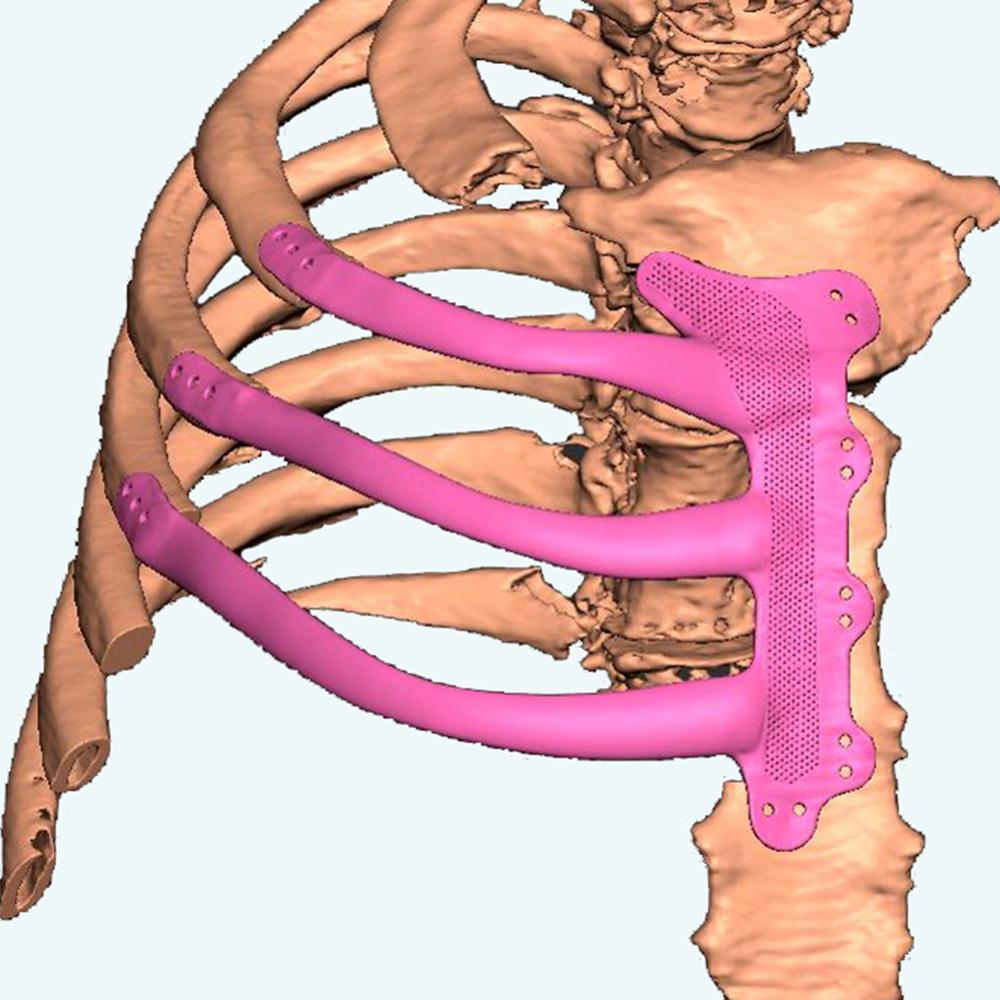
Renishaw has produced a unique titanium rib prosthesis for a Welsh cancer patient using 3D printing
71-year-old Peter Maggs received life-saving chest surgery at Morriston Hospital, Wales, during an operation to remove a large sarcoma from his chest. As part of the procedure, Mr Maggs received a rib prosthesis which was designed by Morriston Hospital. This is the first chest prosthesis to be manufactured and implanted into a patient in Britain.
Chris Pockett, Head of Communications at Renishaw plc stated, “We are delighted to have been the subcontractor for this complex 3D printed titanium implant designed in-house by Abertawe Bro Morgannwg University Health Board. The implant was produced on a Renishaw metal additive manufacturing (AM) machine at our Miskin facility near Cardiff, where all our AM systems are manufactured.”
To remove the sarcoma, Mr Maggs’ surgeons had to remove part of his sternum and three of his ribs. Without a prosthesis, this would have left his chest in an extremely unstable condition.
Heather Goodrum, Biomedical 3D Technician and Peter Llewelyn Evans, Manager of Maxillofacial Laboratory Services at Morriston Hospital, designed the implant using data from CT scans of Mr Maggs’ chest. Renishaw then produced the implant from titanium using its additive manufacturing technology, to the specification of the hospital.
“Additive manufacturing allowed us to produce an implant that was an excellent fit for the patient,” explained Ed Littlewood, Marketing Manager at Renishaw’s Medical and Dental Products Division. “Conventional prostheses are produced during surgery, once the affected area has been examined and the correct fit determined. Producing the implant in advance meant the surgery time was reduced, which benefitted the patient and the surgeon.”
The remaining bone in Mr Maggs’ ribcage was narrow and soft. Conventional prostheses, which are made of biocompatible cement, would not have been strong enough to support this bone.
“Traditionally, the patient would have been fitted with a Polymethyl Methacrylate (PMMA) implant, which can only be hand-fashioned during surgery,” explained Peter Llewelyn Evans, Maxillofacial Laboratory Services Manager at Morriston Hospital. “Additive manufacturing allowed us to save around two hours of surgery time, because the implant could be designed and manufactured prior to the procedure. The shorter the procedure time, the better it is for the health of the patient.
“Being able to manufacture the implant from titanium also increased its biocompatibility and closeness to the original bone structure, both leading to a better outcome for the patient.”
Due to Mr Maggs’ successful recovery, Morriston Hospital is planning to use additively manufactured implants to treat future patients of this kind.
Renishaw’s Medical and Dental Products Division offers metal AM systems to additively manufacture a range of products for healthcare applications, including patient-specific implants (PSIs) for craniomaxillofacial surgery and dental frameworks. To find out more about Renishaw’s healthcare products
http://www.renishaw.com/healthcare